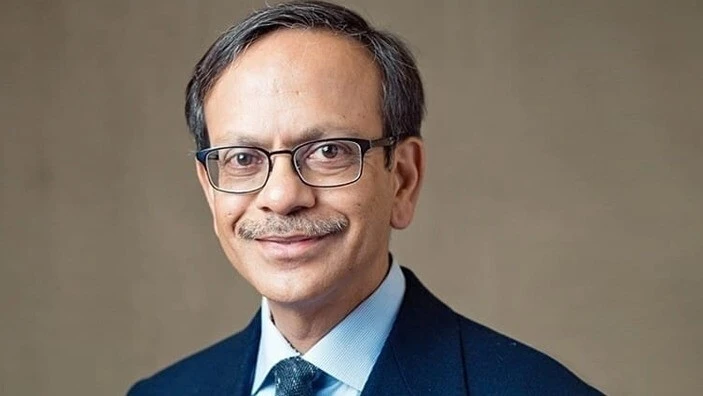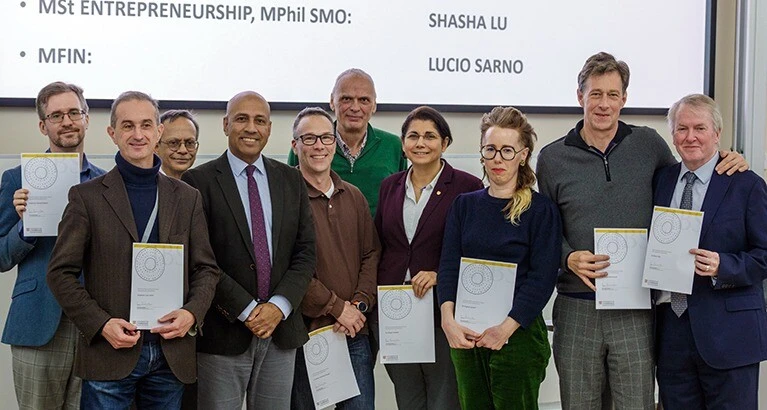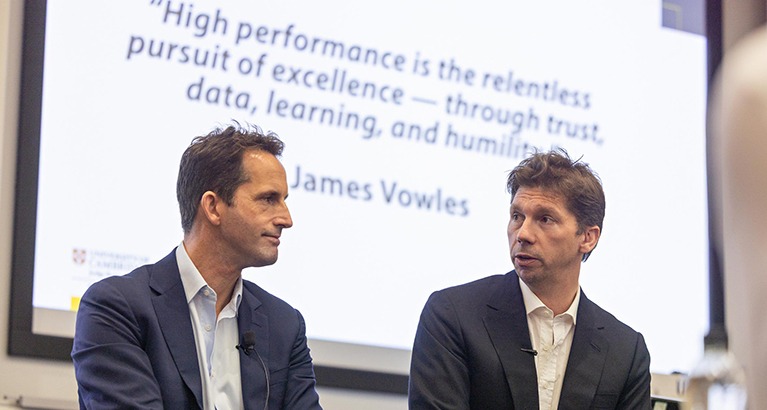Professor of Operations Management
Senior Member and Fellow of Hughes Hall
MBA, PhD (Case Western University)
My research interests include managing complex projects, managing complexity in organisations, and the future of work in the age of technological discontinuity. I’ve served as advisor on several projects with the US Government Department of Defense and NASA and have consulted with organisations in Silicon Valley and Hong Kong.
I’m a member of the Operations and Technology Management subject group at Cambridge Judge Business School, which focuses on practice-based research through partner organisations to address a wide spectrum of management challenges.

Professional experience
Professor Sengupta’s academic and professional career has been in organisations in the United Kingdom, United States of America, France, Hong Kong and India. He joined Cambridge Judge Business School in 2014 and was the Business School’s Director of Executive Education during 2016-2019.
Professor Sengupta’s consulting activities involve organisations in Europe, Asia, and the United States. He serves on the boards of startups in education technology. He has taught extensively in executive education, MBA and EMBA at Cambridge Judge Business School, INSEAD, and the Seoul National University. He has created several executive education programmes at Cambridge Judge, including the flagship Senior Management Programme, Leading Strategic Projects Successfully and Integrating Risk into Strategic Decision Making. Professor Sengupta teaches Leading Effective Projects in MBA and EMBA, and Innovation Management in EMBA. He has created several teaching cases, simulations and other pedagogical material for which he was awarded the European Case Award.
Professor Sengupta has published in top journals in various academic disciplines, including Management Science, Organization Science, the Academy of Management Journal, MIS Quarterly, and IEEE Transactions on Software Engineering. He has also published in the business literature, eg Harvard Business Review, the Financial Times, and the European Business Review. Among them is a widely acclaimed article in Harvard Business Review on how managers fail to learn from experience. Professor Sengupta has also contributed to the online section of Harvard Business Review. His research has been highlighted in the Wall Street Journal and Forbes. His most recent writing for senior leaders is in the Financial Times. Professor Sengupta has co-authored a recent book on How Megaprojects Are Damaging Nigeria and How to Fix It (Palgrave Macmillan 2022). Currently, he is working on a book on how executives manage their time.
Previous appointments
Before joining the University of Cambridge in 2014, Professor Sengupta held faculty positions at INSEAD, Fontainebleau, France (2000-2014), the Naval Postgraduate School, Monterey, California, USA (1989-2000), and the Hong Kong University of Science and Technology (1996-1998). He has also worked at the AT&T Network Software Center and Ernst and Young. His responsibilities included serving as advisor on complex projects to large organisations and the US Government Department of Defense.
Selected publications
- van Oorschot, K.E., Sengupta, K. and Van Wassenhove, L.N. (2018) “Under pressure: the effects of iteration lengths on agile software development performance.” Project Management Journal, 49(6): 78-102 (DOI: 10.1177/8756972818802714)
- Sengupta, K., Abdel-Hamid and Van Wassenhove, L. (2008) “The experience trap.” Harvard Business Review, 86(2): 94-101
- Lajos, J., Chattopadhyay, A. and Sengupta, K. (2008) “When electronic recommendation agents backfire: negative effects on choice satisfaction, attitudes, and purchase intentions.” INSEAD Working Papers, No.2008/33/MKT. Fontainebleau: INSEAD.
- Nissen, M.E. and Sengupta, K. (2006) “Incorporating software agents into supply chains: experimental investigation with a procurement task.” MIS Quarterly, 30(1): 145-166
- Evgeniou, T. and Sengupta, K. (2003) “Kent County Council: implementing IT for e-government.” INSEAD Case Study.
- Evgeniou, T. and Sengupta, K. (2002) “Cluster specific software effort estimation for multi-company datasets.” INSEAD Working Papers, No.2002/77/TN/RISE. Fontainebleau: INSEAD.
Awards and honours
- Outstanding Award, Naval Postgraduate School, Monterey, 1999
News and insights
Faculty news
2025 Cambridge Judge excellence in teaching awards
Eleven members of the Cambridge Judge Business School faculty are awarded teaching prizes for excellence across the Business School’s various programmes.
Leaders from across global business joined a special event at Cambridge Judge Business School – Unpacking High Performance: From the Racetrack to the Boardroom – in which the connection between high performance in sport and business was explored by guests including James Vowles, Team Principal of the Formula 1 Team Atlassian Williams Racing, and Sir Ben Ainslie, the world’s most successful Olympic sailor with 4 Gold and one Silver medal and winner of the America’s Cup in 2013.
Business School announcements
2023 Cambridge Judge excellence in teaching awards
Five members of the Cambridge Judge faculty are awarded teaching prizes for excellence across the Business School’s various programmes.
Media coverage
Legal Futures | 3 December 2021
Top 50 law firms heading for “two-track” future
Top UK law firms, slow to automate, shift decision-making away from partners toward experienced professionals as the line blurs between client-facing and back-office roles, finds report by Kishore Sengupta, Professor of Operations Management at Cambridge Judge Business School for LexisNexis. Professor Sengupta said “progress between 2015 and 2020 had been uneven, with some firms “poised to leave behind others with muddled strategies and uneven execution.”
Financial Times | 14 June 2020
Why businesses need to embrace discontinuity
“Discontinuous” transformation rather than a leisurely pace of change will be needed at many businesses in the COVID-19 era, Dr Kishore Sengupta, Reader in Operations Management at Cambridge Judge Business School says in a Financial Times article. “Such radical reassessment of capabilities, operations and even the business model itself could become a routine necessity”, Dr Sengupta writes.
HR News | 10 June 2020
Be prepared for employee resistance post-lockdown, experts warn managers
Dr Kishore Sengupta, Reader in Operations Management at Cambridge Judge Business School, comments on remote working: “Give remote employees a budget and the freedom to spend it. Make it obvious that budgets can be used for equipment, for example, but not other classes of product; and that purchases must be tracked.”
Soldo, 28 April 2020
To thrive remotely, leaders need resilience
The European Business Review, 25 July 2019
Deep engagement: Where thought leadership and subject expertise meet
Forbes, 2 July 2018
Too many legal awards – too little custom satisfaction




